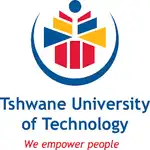Tshwane University of Technology TUT Pretoria West Campus
TUT Pretoria West Campus
The Tshwane University of Technology (TUT) is a prestigious higher education institution located in Pretoria, South Africa. The Pretoria West Campus, situated in the suburb of Pretoria West, is one of the key campuses of the university. Below is a comprehensive overview of the Pretoria West Campus and TUT as a whole:
Pretoria West Campus Overview
Programs Offered: A diverse range of undergraduate and postgraduate programs in fields like engineering, information and communication technology, science, business and economics, humanities, and education.
Facilities: Equipped with modern amenities including lecture halls, laboratories, computer labs, a library, and sports facilities.
General Contact Information
TUT Contact Centre
Telephone: 086 110 2421
Email: general@tut.ac.za
SMS: 30655
Physical Address: Staatsartillerie Road, Pretoria West
GPS Coordinates: 25º43’53.55”S 28º09’40.38”E
Mission, Vision, and Values
Vision: To pioneer an enterprising and transformative brand of 21st-century University of Technology scholarship.
Mission: Committed to supporting students in achieving their highest potential in a safe and conducive environment by fostering teaching and learning scholarship, offering relevant and competitive academic programs, investing in technology, and promoting research and social enterprise.
Values: Emphasizes social accountability, duty of care, non-discrimination, and environmental sustainability.
Campus Network
Tshwane Campuses: Arcadia Campus, Arts Campus, Ga-Rankuwa Campus, and the North and South Campuses in Soshanguve, along with the main Pretoria Campus.
Other Campuses: Service centers in Durban and Cape Town, and additional campuses in eMalahleni, Mbombela, and Polokwane.
Annual Student Enrollment: Educates more than 60,000 students each year.
Institutional Goals
Student-Centered Learning: Focus on preparing students for rewarding careers and responsible citizenship, underpinned by a scholarship of teaching and learning.
Research and Innovation: Promote inquiry and social enterprise through technology-based postgraduate studies and research in current and emerging areas.
Academic Partnerships: Foster mutually beneficial academic, social, and economic partnerships.
Supportive Environment: Provide a supportive teaching, learning, working, and living environment for staff and students.
Additional Information
TUT is known for its extensive range of academic programs and modern facilities.
Its commitment to producing well-rounded graduates who are prepared for the challenges of the modern workplace is evident in its mission and institutional goals.
The university’s commitment to social responsibility, innovation, and inclusivity sets it apart as a leading institution in South Africa.
For anyone considering TUT for their higher education, the Pretoria West Campus, along with other TUT campuses, offers a dynamic and enriching academic environment conducive to both personal and professional growth.
The Tshwane University of Technology (TUT) offers a wide range of courses across various faculties for the 2024 academic year. Here’s a detailed overview of the courses available in each faculty:
1. Faculty of Economics and Finance
Accounting: Offers three levels of studies.
Auditing: Comprises six levels of studies.
Economics: Four levels of studies available.
Managerial Accounting and Finance: Seven levels of studies.
Public Sector Finance: Two levels of studies.
2. Faculty of Engineering and the Built Environment
Architecture: Seven levels of studies.
Building Sciences: Seven levels of studies.
Chemical, Metallurgical and Materials Engineering: Five stages of studies.
Civil Engineering: Eight levels of studies.
Electrical Engineering: Eight levels of studies.
Geomatics: Two levels of studies.
Industrial Engineering: Eleven levels of studies.
Mechanical Engineering, Mechatronics and Industrial Design: Ten levels of studies.
3. Faculty of Humanities
Applied Languages: Seven levels of studies.
Integrated Communication: Six levels of studies.
Journalism: Six levels of studies.
Law: One level of study.
Public Management: Eight levels of studies.
Safety and Security Management: Eight levels of studies.
School of Education: Four levels of studies.
4. Faculty of Information and Communication Technology
Computer Science: Eight levels of studies.
Computer Systems Engineering: Seven levels of studies.
ICT First Years’ and Foundation Unit: Two levels of study.
Informatics: Eight study levels.
Information Technology: Seven levels of study.
5. Faculty of Management Sciences
Business and Information Management Services: Eight levels of studies.
Business School: Six levels of studies.
Hospitality Management: Nine levels of studies.
Management and Entrepreneurship: Seven levels of studies.
Marketing, Supply Chain and Sport Management: Ten levels of studies.
Operations Management: Five levels of studies.
People Management and Development: Eleven levels of studies.
Tourism Management: Nine levels of studies.
6. Faculty of Science
Adelaide Tambo School of Nursing Science: Six levels of studies.
Animal Sciences: Seven levels of studies.
Biomedical Sciences: Seven levels of studies.
Biotechnology and Food Technology: Seven levels of studies.
Chemistry: Eight levels of studies.
Crop Sciences: Seven levels of studies.
Environmental Health: Six levels of studies.
Environmental, Water and Earth Sciences: Ten levels of studies.
Horticulture: Six levels of study.
Mathematics and Statistics: Six levels of study.
Nature Conservation: Six study levels.
Pharmaceutical Sciences: Eight study levels.
Physics: Six levels of study.
Sport, Rehabilitation and Dental Sciences: Seven levels of study.
7. Faculty of Arts
Drama and Film: Five levels of studies.
Entertainment Technology: Four levels of study.
Fashion Design and Technology: Five levels of education.
Fine and Applied Arts: Five levels of education.
Performing Arts: Four levels of study.
Visual Communication: Four levels of study.





